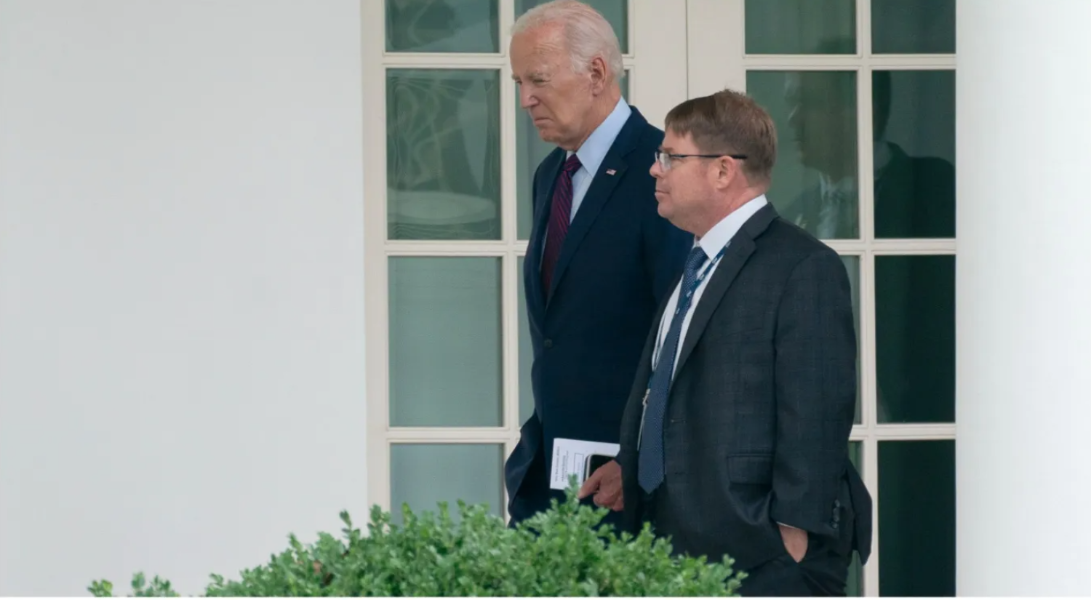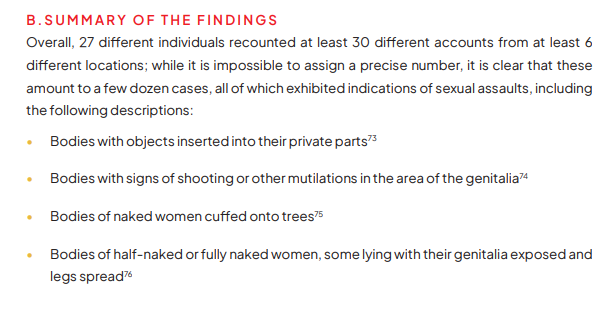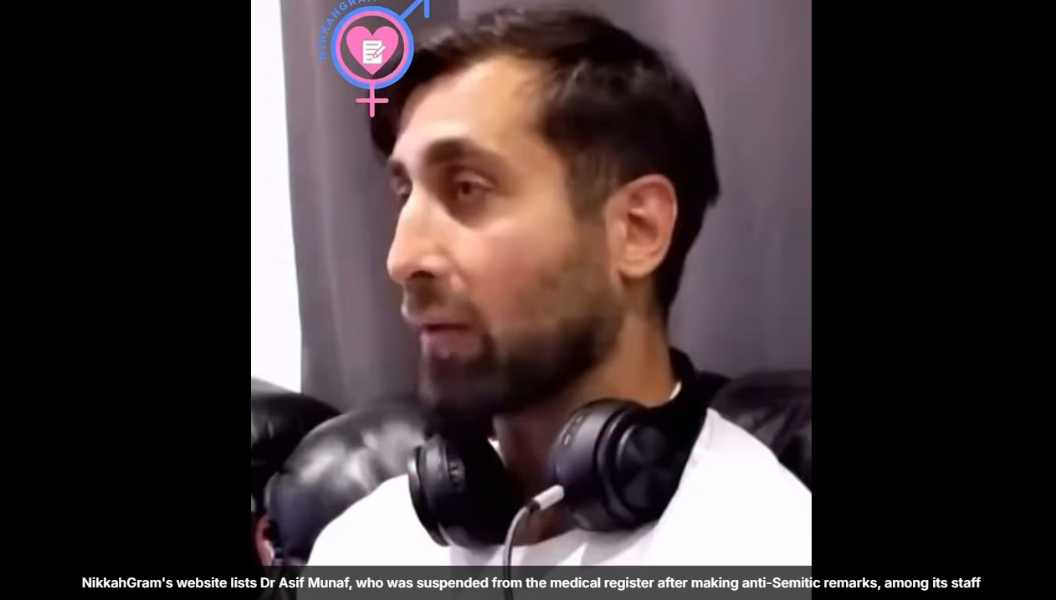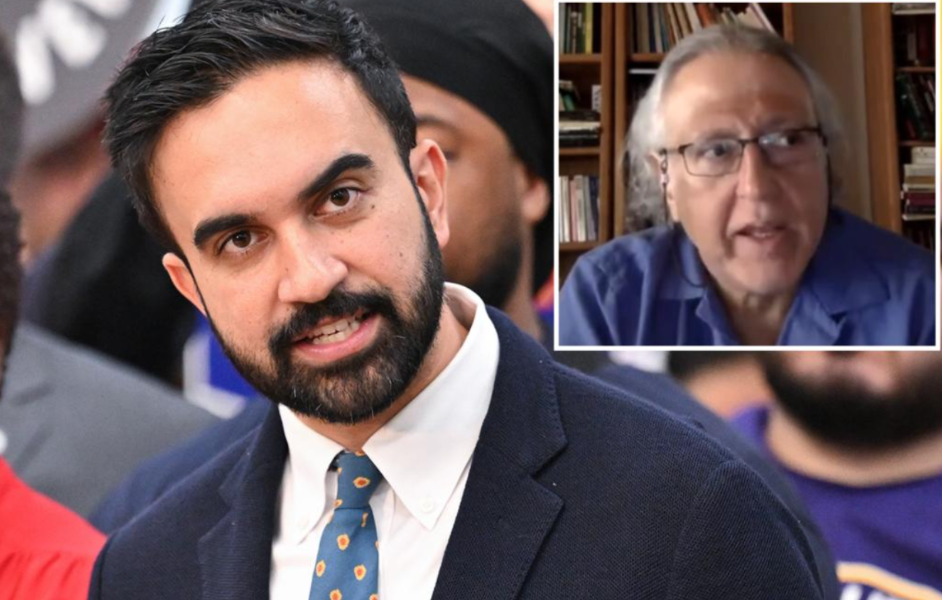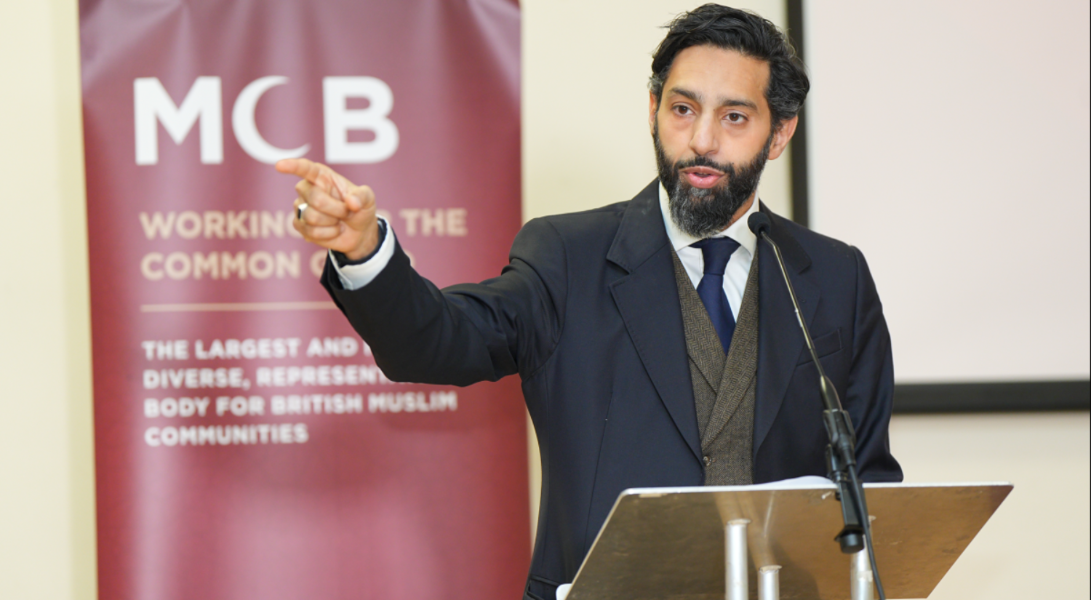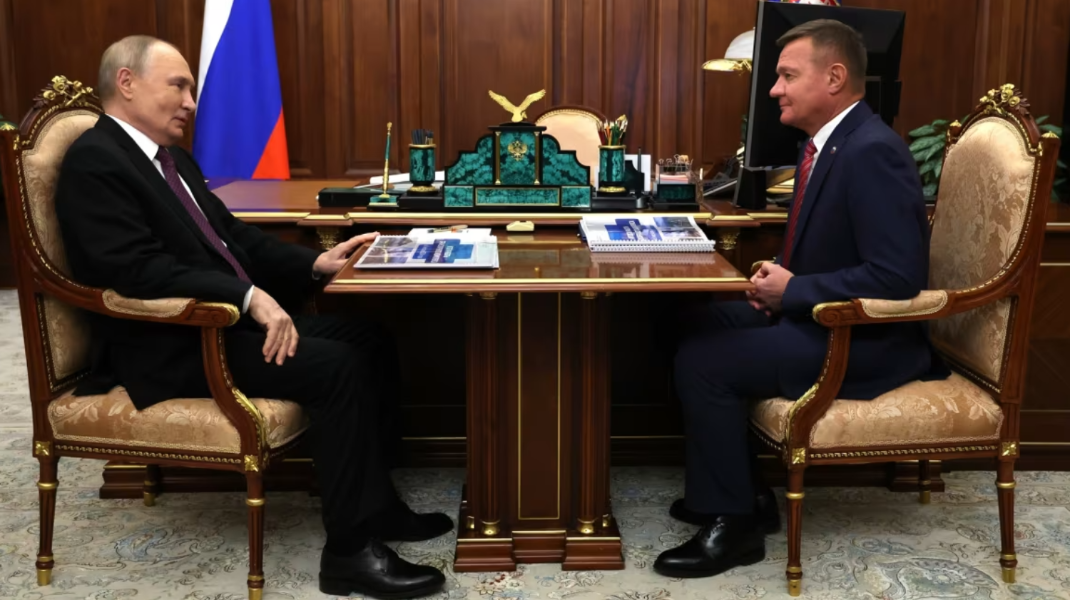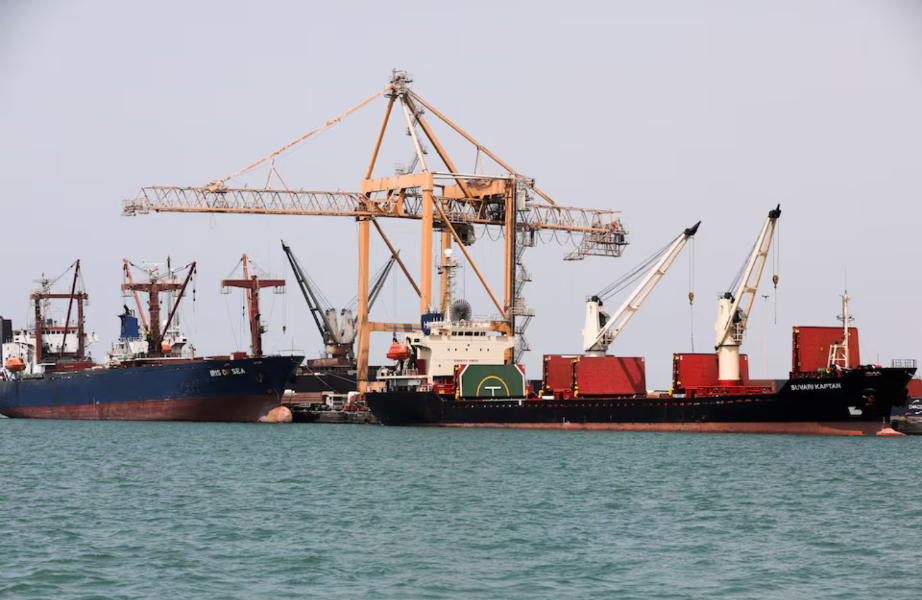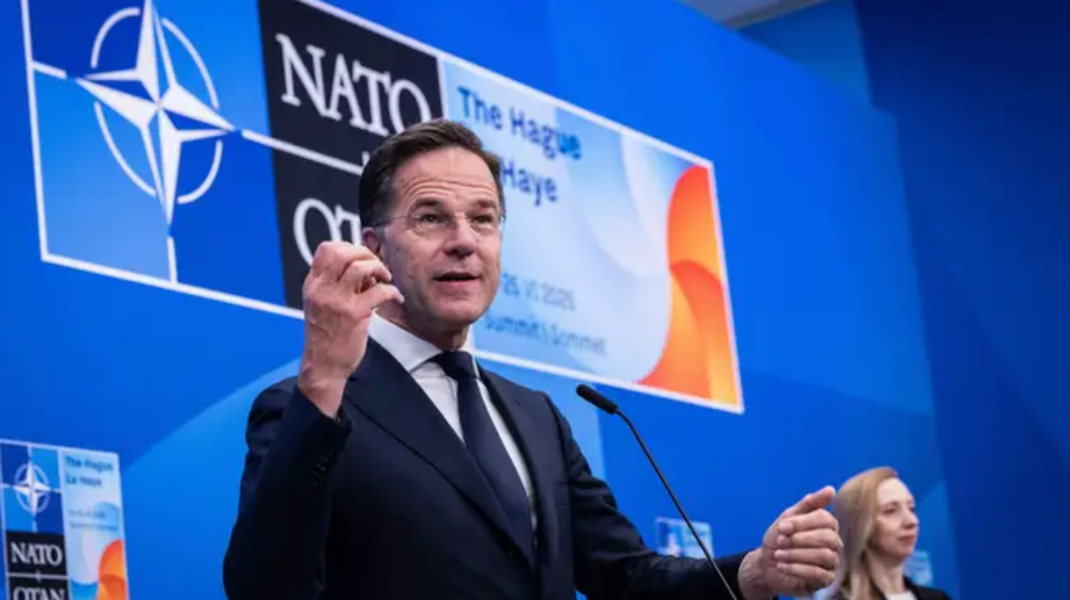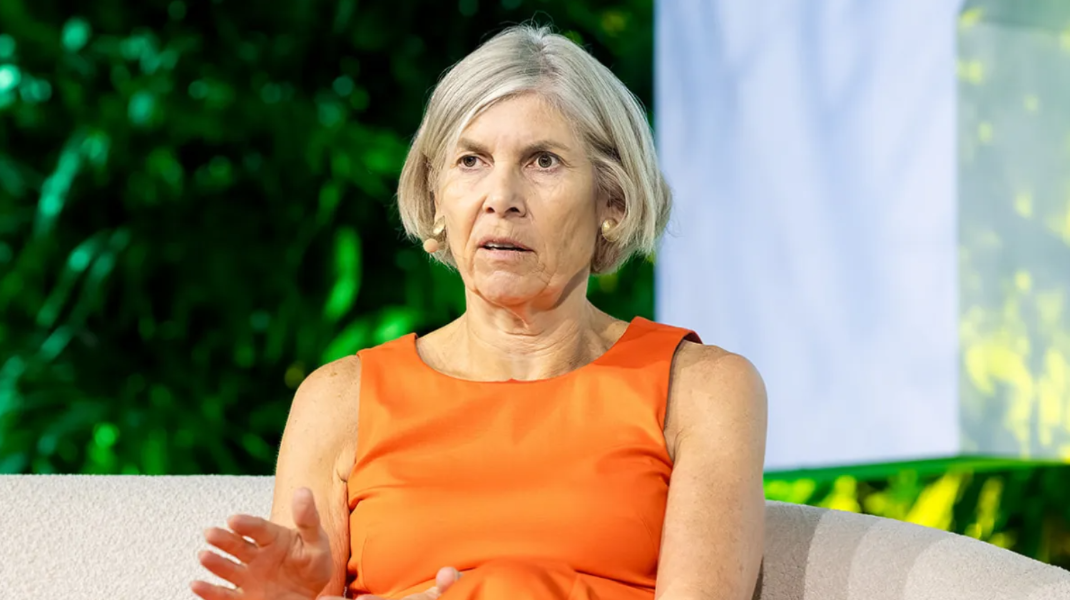-
Posts
10,805 -
Joined
-
Last visited
Content Type
Events
Forums
Downloads
Quizzes
Gallery
Blogs
Everything posted by Social Media
-
Gregg Wallace Vows to Fight On as BBC Faces Scrutiny Over Alleged Misconduct Cover-Up The BBC is under mounting pressure to explain its handling of longstanding allegations against TV presenter Gregg Wallace, who has now been removed from his long-held role on MasterChef following a series of misconduct claims. The broadcaster's silence amid a growing number of complaints—now reported to involve more than 50 individuals—has sparked public outrage and calls for accountability at the highest levels of BBC leadership. Wallace, 60, was officially dismissed from his presenting role on MasterChef, a programme he had co-hosted since 2005, after a legal review into his conduct. Despite the BBC distancing itself by deferring the investigation to Banijay, the independent production company behind MasterChef, the scandal has nonetheless placed the BBC in the spotlight. Wallace is adamant that he has been treated unfairly, stating, “After 21 years of loyal service to the BBC, I cannot sit in silence while my reputation is further damaged to protect others.” In a defiant statement ahead of the official report's release, Wallace acknowledged that he had used inappropriate language at times, saying, “I recognise that some of my humour and language, at times, was inappropriate. For that, I apologise without reservation.” He insists that the findings will clear him of any serious misconduct, though he did admit to once opening his dressing room door naked except for a sock over his genitals, which he claims happened after filming had ended. Wallace also suggested that some of his behaviour may have been influenced by his recently diagnosed autism, which, he said, made the MasterChef environment “dangerous” for him. “Yet nothing was done to investigate my disability or protect me,” he said. “That failure is now being quietly buried.” New allegations published by BBC News include disturbing accusations of sexual misconduct spanning more than two decades. Sophie, a junior staffer on the 2013 MasterChef series, alleged Wallace groped her covertly at a wrap party while standing beside co-host John Torode. “Gregg’s time has come,” she said. “But the most senior leadership, who have clearly heard these testimonies over the years and not chosen to remove him, should also resign.” Another accuser, known as Alice, described an incident in 2012 when Wallace allegedly invited her to his dressing room under the pretext of needing help changing into formalwear. Once inside, she claims he pushed her onto a sofa and exposed himself. When she reported the incident to the production team, a senior staff member allegedly dismissed her concerns with the remark: “You’re over 16, you’re not being ‘Jimmy Saviled’.” Earlier complaints include an allegation from a participant on Saturday Kitchen in 2002, when Wallace was said to have touched a woman’s groin during a pre-show dinner and asked, “Do you like that?” A junior production worker on the same show claimed that Wallace had groped her breasts and bottom, but she stayed silent out of fear of losing her job. “It was like no one else had a problem with what was happening, so I couldn’t have a problem either,” she said. Despite these troubling accounts, the BBC has not conducted its own investigation. Given that MasterChef is one of the BBC’s eight flagship programmes, critics argue that the broadcaster had a responsibility to provide better oversight rather than outsource accountability. Wallace has lashed out at the BBC and its news division, claiming the recent coverage amounts to “baseless and sensationalised gossip masquerading as properly corroborated stories.” He continued, “The BBC is no longer providing balanced and impartial public service journalism.” He also took aim at his critics, alleging that the complaints were driven by “a handful of middle-class women of a certain age.” According to Wallace, “The most damaging claims including allegations from public figures… have not been upheld [and] were found to be baseless after a full and forensic six-month investigation.” Wallace concluded with a vow not to retreat quietly, stating, “I will not be cancelled for convenience. I was tried by the media and hung out to dry well before the facts were established. The full story of this incredible injustice must be told and it is very much a matter of public interest.” A BBC spokesperson has said, “Banijay UK instructed the law firm Lewis Silkin to run an investigation into allegations against Gregg Wallace. We are not going to comment until the investigation is complete and the findings are published.” Related Topics: BBC Faces Scrutiny Over Allegations Against Gregg Wallace Following External Investigations Adapted by ASEAN Now from Daily Telegraph 2025-07-10
-
Biden’s Former Physician Seeks Delay in Congressional Testimony Over Doctor-Patient Privacy Concerns Dr. Kevin O’Connor, who served as President Joe Biden’s personal physician during his White House tenure, has requested a delay in his scheduled testimony before the House Oversight and Government Reform Committee, citing legal and ethical concerns over the scope of questioning he may face. The deposition, originally set for Wednesday, is part of a broader Republican-led inquiry into President Biden’s cognitive health and alleged use of an autopen device for signing documents. In a formal letter to Committee Chairman Rep. James Comer (R-Ky.), O’Connor’s attorney, David Schertler, asked to postpone the deposition until the week of July 28 or August 4, highlighting the unresolved issue of how the committee intends to handle protected medical information. “Dr. O’Connor has legal and ethical obligations that he must satisfy and for which violations carry serious consequences to him professionally and personally,” the letter stated. Schertler also questioned the committee’s apparent refusal to define or limit the scope of the deposition, warning that forcing O’Connor to testify without safeguards would set a dangerous precedent. “We are unaware of any prior occasion on which a Congressional Committee has subpoenaed a physician to testify about the treatment of an individual patient,” Schertler wrote. “And the notion that a Congressional Committee would do so without any regard whatsoever for the confidentiality of the physician-patient relationship is alarming.” The committee, which has been pushing forward with its investigation into the President’s health and mental acuity, has dismissed O’Connor’s concerns as obstruction. A spokesperson told NBC News, which first reported the letter, that the physician was trying to “stonewall” the investigation and added that O’Connor could assert privilege question by question during the deposition if necessary. O’Connor is not the only White House insider the committee has sought to question as part of its probe. Neera Tanden, the former director of the White House Domestic Policy Council, has already sat for an interview. Anthony Bernal, a top aide to former First Lady Jill Biden, was also scheduled to testify but failed to appear, prompting the committee to issue a subpoena. The investigation into President Biden’s health has become a politically charged issue in recent months, with Republican lawmakers raising questions about his cognitive fitness, especially in light of his 2024 re-election campaign. The inquiry has also focused on the use of an autopen—a device that allows for remote signature replication—as a potential sign of declining health or absent leadership, though its use is neither new nor unique to the Biden administration. As the dispute over Dr. O’Connor’s testimony intensifies, it underscores the broader clash between congressional oversight authority and the sanctity of medical confidentiality. Whether the committee will agree to the delay or impose clearer boundaries on its questioning remains to be seen. For now, Dr. O’Connor’s appearance remains in limbo, pending further negotiation over what he can—and cannot—be compelled to say. Adapted by ASEAN Now from The Hill 2025-07-10
-
A new report draws on a wide body of evidence on Hamas and its "deliberate genocidal strategy" during its 7 October 2023 attack on Israel. Their findings are laid out in a new report by the Dinah Project, an all-women initiative formed to pursue justice for victims of sexual violence. The report draws on evidence, including first-hand testimony from a survivor of an attempted rape and interviews with 15 former hostages who were held in Gaza. Additional material includes accounts from witnesses to sexual assaults, social media posts, forensic material, and visual and audio documentation. The Dinah Project was founded in the wake of the October attack by legal scholar Ruth Halperin-Kaddar, former chief military prosecutor Sharon Zagagi-Pinhas, and Nava Ben-Or, a former judge and deputy attorney general. The group states that their new report “establishes that Hamas used sexual violence as a tactical weapon, as part of a genocidal scheme and with the goal of terrorizing and dehumanizing Israeli society.” The report was released on Tuesday and, according to its authors, it “creates a pathway to justice for victims of the 7 October attack and potentially for victims in other conflict zones.” It offers what the group calls “a legal blueprint for prosecuting these crimes, even when direct attribution to individual perpetrators is impossible.” One former hostage cited in the report said she was forced to perform a sexual act after enduring verbal and physical sexual harassment, forced nudity, and abuse. Six other hostages also reported being forced to strip during their captivity. The Dinah Project argues that the nature and scale of the sexual violence committed point to it being “widespread and systematic” during the 7 October assault. Specific numbers from the report are harrowing. Five witnesses described at least four separate incidents of gang rape. Seven reported at least eight other distinct cases of rape or severe sexual assault, including some that occurred during captivity. Additionally, five witnesses spoke of three separate sexual assaults, while three others recounted cases involving mutilation. The incidents are reported to have occurred in various locations, including the Nova music festival, the Nahal Oz military base, the Route 232 road, and multiple sites inside Gaza where hostages were held. The group’s legal blueprint outlines a method for establishing criminal responsibility even when individual perpetrators cannot be linked to specific acts. It proposes an evidentiary structure that organizes material based on its relevance and reliability, and a legal framework that allows for prosecution even when a person did not commit or directly witness a crime. This, the authors argue, is crucial in cases involving mass atrocities where chaos and terror obscure traditional evidence trails. In March 2024, a United Nations mission found “reasonable grounds” to believe that conflict-related sexual violence had taken place during the 7 October attacks, including incidents of rape and gang rape. The mission also reported “convincing information” that hostages had been subjected to rape and sexualized torture. Furthermore, three top Hamas leaders—who were later assassinated by Israel—were named by the International Criminal Court’s prosecutor for crimes against humanity, including rape, sexual violence, murder, extermination, and torture. The Dinah Project concludes its report with a strong message: “Justice is essential not only for individual victims but for affirming broader principles: that sexual violence in conflict is a serious violation of international law, that perpetrators will be held accountable, and that the international community will not allow such crimes to be committed with impunity.” Related Topics: 7 October Parliamentary Commission Report (pdf download) UN finds evidence of rape on Oct. 7 and after Chilling Confessions Father and Son Describe Sexual Crimes During Hamas Invasion Israeli report says Hamas sexual violence 'systematic and intentional' Adapted by ASEAN Now from BBC 2025-07-10
-
UK-Based Muslim Matchmaking Site Under Fire for Promoting Virgin Brides and Polygamy A UK-registered matchmaking platform has come under scrutiny for promoting virgin brides, polygamous unions, and content that critics say is deeply misogynistic and potentially harmful. Known as NikkahGram, the site markets itself as an Islamic solution for men seeking “a shy, untouched spouse” or looking to marry up to four wives, in accordance with interpretations of Sharia law. Founded in 2022, the platform has stirred outrage with its approach to female users. Virgin women under 35 are given free access and are positioned as ideal first wives. In stark contrast, women over that age or those with previous sexual experiences are likened to “low quality products,” whose only viable option is sharing a husband in a polygamous marriage. Women must disclose their virginity status—defined by the platform as having had no “previous relationship, haram physical touches or any type of intercourse”—as well as whether they would accept a non-monogamous union. The company’s messaging and practices have been condemned by politicians and women’s rights advocates. Naz Shah, former shadow minister for women and equalities, called the platform’s content “frankly vile and deeply disturbing.” She said, “The categorisation of women into so-called ‘virgins’ and ‘non-virgins’, along with different membership ‘tiers’ based on such degrading labels, is nothing short of dehumanising. This kind of rhetoric has no foundation in Islam, nor in any ethical framework rooted in dignity or respect.” Among the figures associated with NikkahGram is Asif Munaf, a former NHS doctor suspended from the medical register after an investigation into anti-Semitic social media activity, including Holocaust denial and 9/11 conspiracy theories. Originally listed as NikkahGram’s “associate qualified doctor,” Munaf was later rebranded as an “associate coach.” A £99 “mental wealth coaching call” offering his “medical expertise” has since been removed. Nonetheless, Munaf continues to post pseudoscientific claims and misogynistic views through the platform’s social media accounts. In one video, Munaf falsely claimed that contraceptive pills could make women “kind of bisexual” by disrupting hormones. In another, he argued that women “have defects in their intellect” and cannot be leaders, stating, “Women do need to be treated with a bit more support and advice. Because they don’t have the ability to make decisions for themselves… How many prophets were women? Zero.” He justified this by citing Islamic scholarship. Other posts and videos linked to NikkahGram promote wife-beating as “symbolic,” endorse the wearing of the niqab, and encourage divorcing “feminist” wives who fail to meet domestic expectations. Sheikh Assim Al Hakeem appears in one clip explaining that a husband displeased with his wife should first advise her, then withhold sex, and only as a last resort strike her “lightly.” He added, “Not with a baseball bat… but gradual. And this is for the goodness of the marriage.” Critics say NikkahGram’s brand of religious conservatism masks a more dangerous ideology. Baroness Shaista Gohir, chief executive of the Muslim Women’s Network UK, said, “What they present as ‘family values’ is thinly veiled misogyny, targeting vulnerable women – especially new converts, those with limited religious knowledge, and insecure young Muslim men struggling with identity.” She warned that the site reflects “fringe voices” inspired by Western misogynists like Andrew Tate, dressed in the language of piety and Islamic tradition. The website also encourages men to seek wives abroad, particularly for second marriages, suggesting women overseas are “less prone to feminism” and “more traditional.” One promotional video states: “If you’re tired of Western sisters and want a wife… who respects your role as a man and provider, and hers as a homemaker, you should consider this.” In response to inquiries, NikkahGram claimed it operates “strictly within UK law and Islamic principles” and denied any promotion of abuse or illegality. A spokesperson said, “We provide a religious matrimonial service that reflects the values and preferences of many practicing Muslims. All participation is voluntary.” Yet the platform’s portrayal of women, particularly its emphasis on virginity and domestic submission, has sparked broader concerns about integration and women’s rights in Britain. Robert Jenrick, the shadow justice secretary, said: “This vile site promotes domestic abuse. It shouldn’t exist. The fact it does shows yet again how our immigration and integration policies have failed.” The Home Office has been contacted for comment. Related Topics: Britain’s Sharia Courts and the Challenge of Religious Freedom London’s Hidden Courts: The Rise of Unregulated Sharia Councils Adapted by ASEAN Now from Daily Telegraph 2025-07-10
-
Mayoral Hopeful’s Campus Group Hosted Speaker Who Blamed U.S. for 9/11 and Admired Terror-Linked Leader Zohran Mamdani, the Democratic Socialist who recently surged to victory in New York City’s Democratic primary for mayor, is facing scrutiny for his past involvement with a college group that invited a controversial speaker who later blamed the United States for the September 11 terror attacks. In 2013, while attending Bowdoin College, Mamdani co-founded the campus chapter of Students for Justice in Palestine (SJP), a group that invited Lebanese-American professor As’ad AbuKhalil to speak about Middle Eastern politics. The visit has resurfaced as a point of contention, given AbuKhalil’s inflammatory remarks and ties to individuals widely condemned for promoting terrorism. Speaking in 2021, AbuKhalil asserted that the United States bore responsibility for the 9/11 attacks. “We have to remember that the US basically was hit on 9/11 by forces that were reactionary and fanatic and were raised and armed and sponsored by America and its allies in the Middle East,” he said. He added, “People forget that 9/11 is a repercussion of the Cold War when the US made its bed and clearly with the religious fanatics of the Muslim world.” While acknowledging the tragedy of 9/11, noting “it’s heart-wrenching remembering all these people who came from 80 nationalities, the ones who died on 9/11 here in the United States,” AbuKhalil contended, “but there were many earlier 9/11s that the US inflicted on people around the world.” AbuKhalil, who teaches at California State University Stanislaus, has also praised George Habash, the founder of the Popular Front for the Liberation of Palestine (PFLP), an organization classified as a terrorist group by the United States since 1997. “He was a great Palestinian leader,” AbuKhalil said during a 2012 appearance in Edinburgh. “Of course if you look at newspapers he would be seen as terrorist,” he added, while crediting Habash as having “tremendous influence” on his thinking. Time magazine once described Habash as “the godfather of Middle East terrorism,” and the Anti-Defamation League noted that his PFLP gained notoriety in the 1970s for a wave of airplane hijackings. Mamdani’s SJP chapter has been involved in other controversial activities over the years, and his past affiliations and statements have drawn growing criticism as his political profile rises. He has previously come under fire for appearing to defend al Qaeda figure Anwar al-Awlaki in resurfaced tweets. Al-Awlaki, a known extremist preacher, was killed in a drone strike authorized by President Barack Obama. In another contentious revelation, Mamdani reportedly identified himself as both “African American” and “Asian” on a college application to Columbia University, which ultimately rejected him. Born in Uganda, Mamdani is of South Asian descent. Though Mamdani won the primary in a landslide, besting former Governor Andrew Cuomo and current Mayor Eric Adams among others, his general election battle is far from over. He faces Republican nominee Curtis Sliwa and a trio of other contenders—Adams, Cuomo, and entrepreneur Robyn Walden—who are running on minor party lines. Despite his commanding primary win, establishment Democrats have so far withheld endorsements, reflecting concern among moderates desperate to prevent Mamdani’s far-left platform from taking control at City Hall. Adapted by ASEAN Now from NYP 2025-07-10
-
Post removed as a topic on that is already running:
-
Think Tank Accuses Muslim Council of Undermining Press Freedom A new report has accused the Muslim Council of Britain (MCB) of acting in “bad faith” by attempting to stifle legitimate reporting on Islamist terrorism, claiming such efforts risk curbing press freedom in the UK. The report, published by the think tank and educational charity Policy Exchange, focuses on the activities of the Centre for Media Monitoring (CfMM), an arm of the MCB. It alleges that the CfMM has pressured journalists and media producers to adopt a one-sided portrayal of Islam while misrepresenting the nature of factual coverage. Despite claiming to address misreporting, the CfMM has reportedly uncovered only “a tiny number” of genuinely false and harmful stories since its inception seven years ago, according to the 94-page study. The report suggests that much of the CfMM’s work is rooted in ideology rather than journalistic standards. While the CfMM has not issued a formal rebuttal to the report, it has expressed concern over its findings. A representative stated that the organisation “engages constructively” with media companies and regulatory bodies. It also confirmed it had shared its internal style guide with the BBC and participated in discussions with the Independent Press Standards Organisation (Ipso), including calls for stricter guidelines on the reporting of Muslims. However, the report challenges the CfMM’s influence on media practices. Journalist and Times Radio presenter Andrew Neil endorsed the report’s conclusions, arguing that the CfMM mischaracterises the British media. “This Policy Exchange report forensically demonstrates that CfMM, its evidence and its conclusions are badly flawed,” Neil said. “It shows how CfMM has a purpose far wider than the correction of supposed factual errors. It seeks to enforce a tendentious view of Islam and sometimes seeking to suppress truthful, factual reporting which happens to contradict that view. The increasing role played by self-appointed, unrepresentative and often rather small activist groups in shaping public debate has been examined too little.” Andrew Gilligan and Damon Perry, authors of the Policy Exchange report, criticised the CfMM for what they see as overstating the scale of bias in the media. The CfMM has claimed that nearly 10 per cent of the 55,000 articles it monitored misrepresented Muslims and that around 60 per cent of stories about Islam are negative. But the authors argue these claims distort the reality of media coverage and conflate critical reporting with prejudice. The report cites instances where media outlets were attacked for referring to individuals such as Mohammed Emwazi, better known as Jihadi John, as a “terrorist,” or Khalid Masood, the Westminster attacker, as an “Islamic extremist.” According to Gilligan and Perry, such pressure frames accurate descriptions of terrorism as Islamophobic. The report also questioned the CfMM’s lobbying efforts around fictional media portrayals. It described efforts to influence drama content that features Muslim characters who are gay or reject traditional dress like the hijab, suggesting this signals a wider intent to police cultural narratives. “This report provides all who need it with the evidence that the Centre for Media Monitoring is a bad-faith actor. It should not be engaged with or taken at face value by journalists, regulators or anyone else,” Gilligan and Perry concluded. The MCB has long been viewed with suspicion by UK authorities. In 2009, the Labour Party suspended formal ties with the group after one of its leaders was alleged to have supported violence against Israel, an accusation the MCB denied. More recently, a 2023 review of the government’s Prevent counterextremism programme by Sir William Shawcross reaffirmed the official policy of non-engagement with the MCB, citing “unresolved extremism concerns.” The CfMM has been contacted for comment. Adapted by ASEAN Now from The Times 2025-07-09
-
Russian Transport Minister Dies by Suicide Hours After Dismissal by Putin Roman Starovoit, Russia’s recently dismissed transport minister and former governor of the Kursk region, died by suicide on Monday just hours after President Vladimir Putin removed him from office, according to Russian authorities. Starovoit’s termination was formalized through a presidential decree released on the Kremlin’s official website that morning. He was swiftly replaced by his deputy, Andrey Nikitin, who was appointed acting minister. When questioned about the reason for Starovoit’s sudden removal, Kremlin spokesman Dmitry Peskov stated it was not due to a “lack of trust,” but did not offer any further explanation. Later that day, the Investigative Committee of Russia announced that Starovoit’s body was discovered in a vehicle in Odintsovo, a suburb outside Moscow. He had sustained a gunshot wound, and while the case remains under investigation, authorities confirmed that “the main theory is suicide.” In a striking coincidence, another senior figure in Russia’s transportation sector also died on the same day. Andrey Korneichuk, a 42-year-old official with the Federal Agency for Rail Transport, reportedly died at his workplace, with initial reports suggesting “acute heart failure.” Authorities have found no connection between the two deaths. Before being named transport minister in May 2024, Starovoit served as the governor of the Kursk region in southern Russia. Although he left office before a surprise Ukrainian incursion into the area, he had been partially blamed for the security lapses that allowed the breach. His record came under renewed scrutiny in recent days. Russian media outlets, including state broadcaster Vesti, the independent business site RBC, and the national daily Kommersant, all reported Monday that Starovoit was under investigation for allegedly embezzling government funds. These funds had been allocated for constructing military fortifications in the Kursk region. Kommersant stated that Starovoit was likely facing arrest. The same investigation previously led to the April arrest of Alexei Smirnov, Starovoit’s predecessor as Kursk governor and former deputy. His dismissal also coincided with mounting problems in Russia’s transportation infrastructure. Over the weekend and into Monday, the country faced major disruptions in air travel. According to the Russian Federal Agency for Air Transport, 485 flights were canceled, 88 were diverted, and approximately 1,900 were delayed. While the agency cited “external interference” as the cause, it did not elaborate further. However, the Russian Defense Ministry confirmed that more than 400 Ukrainian long-range strikes had been intercepted over the same period. The combination of air traffic chaos and military strain added further tension to a day already marked by two deaths within the Transport Ministry. The Kremlin has not commented further on Starovoit’s death, nor on the allegations surrounding the embezzlement probe. The investigation continues. Adapted by ASEAN Now from CNN 2025-07-09
-
UK Charity Regulator Bans Trustee Over Anti-Semitic Sermon Following Hamas Attacks A trustee at an Islamic charity in Nottingham has been banned from holding any senior charitable role for three years after delivering a sermon six days after the October 7 Hamas attacks in which he appeared to incite violence against Jews. The Charity Commission, which regulates charities in England and Wales, also issued a formal warning to the Nottingham Islam Information Point (NIIP), finding that it failed to uphold its responsibilities and allowed “divisive and inflammatory” rhetoric on its premises. Harun Abdur Rashid Holmes, a leading figure at NIIP, came under scrutiny after preaching a sermon that referenced a controversial Hadith. He stated: “The hour will not begin until the Muslims fight the Jews and the Muslims will kill them until a Jew hides behind a rock or a tree. And the rock or tree will say ‘Oh Muslim... there is a Jew behind me. Come and kill him’.” He also offered prayers for the “mujahideen” in Palestine during the sermon, a term often associated with Islamic fighters. Delivered on the charity’s property just six days after Hamas launched its unprecedented attack on southern Israel—killing more than 1,200 Jews and taking 251 hostages—Holmes’s words sparked accusations of antisemitism and incitement to violence. The regulator launched a 20-month investigation and concluded that Holmes’s sermon constituted misconduct and mismanagement, and did not further the charity’s stated aims. “The sermon was inflammatory and divisive,” said Stephen Roake, assistant director of investigations and compliance at the Charity Commission. “We acted robustly and disqualified the trustee who gave the sermon. We also issued the charity with a formal warning.” Roake emphasized that in times of international conflict, “people expect charities to bring people together, not to stoke division.” The commission also found that Holmes, a former care home assistant manager who was not a qualified imam, failed to provide necessary context to the Hadith he quoted, rendering his message inflammatory. Holmes later told the regulator that he accepted, in hindsight, that the Hadith was “sensitive” and that he did not provide adequate explanation. During the same sermon, Holmes also told attendees not to “busy yourselves with politics and voting,” which the regulator noted could be seen as encouraging people to disengage from the democratic process. The commission determined that the sermon undermined the charity’s mission, which includes relieving poverty and promoting understanding of Islam. Following the commission’s actions, NIIP issued a public apology. “Mr Holmes is not a qualified Imam and has not formally studied Islam. He was given the responsibility of the sermon at late notice and was not able to provide the necessary explanation to references used in the short timespan available. In hindsight he recognises that other references would have been more appropriate. The trustees recognise that certain portions of the sermon may have been construed in a negative light and inadvertently and unintentionally caused offence. We apologise for this.” NIIP, which last reported an annual income of £59,200 and expenditures of £47,700, was established in 1997 with the aim of relieving poverty and dispelling misconceptions about Islam. The commission said the charity has since taken “positive steps to improve their governance,” including introducing a stricter events policy. David Holdsworth, chief executive of the Charity Commission, commented more broadly on recent regulatory action: “Over the past few years, and particularly since the escalation of conflict in the Middle East in October 2023, we have seen charities misused to promote the personal views of those linked to the charity, in some cases inciting hate or condoning violence.” He noted that the commission had opened more than 300 such cases in the past 18 months, issued guidance in about 100 of them, and made over 70 referrals to the police. “There can be no hiding place for those who seek to use charities to promote hate or harm to others,” Holdsworth added. “We won’t hesitate to take firm action to stop such wrongdoing.” Mr Holmes did not respond to requests for comment. Adapted by ASEAN Now from NYP 2025-07-09
-
From Disaster Prevention to Oil Trade Hub: How a UN-Purchased Tanker Became a Houthi Asset A supertanker originally purchased by the United Nations to avert an environmental catastrophe off the coast of Yemen is now being used as a floating oil storage facility by the Houthis, with Russian oil products reportedly moving through it — all while the UN continues to cover its operating costs. The Very Large Crude Carrier (VLCC) Yemen was bought by the UN for $55 million to carry out a delicate mission: transfer over a million barrels of crude oil from the decaying FSO Safer, a rusting vessel long moored off Yemen’s Red Sea coast and considered an ecological time bomb. That operation was successfully completed in August 2023. However, since then, the ship's purpose appears to have shifted dramatically. Following the oil transfer, ownership of the VLCC Yemen was handed over to the Yemen state-owned oil company Sepoc. Yet, the UN has continued paying $450,000 per month to keep the tanker crewed and operational. Despite this significant financial involvement, the organization says it has little control over the vessel's activities and no knowledge of the origin or destination of its current cargoes. According to maritime tracking data and port activity logs, the VLCC Yemen has been engaged in ship-to-ship (STS) transfers involving Russian petroleum products. These operations indicate that the Houthis, who control the Red Sea coastline including the area around Ras Isa, have effectively repurposed the ship as a storage hub. In early June 2025, the first recorded cargo appeared to have been lightered from the vessel and moved to the Ras Isa terminal, raising concerns that it is now a node in the broader Russian oil supply chain. UN officials have expressed frustration over the situation, saying they have formally objected to the apparent use of the vessel for commercial oil activity. “We have protested the transfers of cargo to and from the VLCC Yemen,” a UN spokesperson confirmed, adding that the organization has “no knowledge of the origin or destinations of the cargoes.” The incident reflects the unintended consequences of a complex operation that initially won international praise for eliminating the threat of a catastrophic Red Sea oil spill. The FSO Safer, a corroding offshore storage ship left unmaintained during years of civil war, had posed a grave danger to regional ecosystems and shipping lanes. The UN’s initiative to transfer its contents to a modern tanker was hailed as a model for preemptive environmental action. But with the VLCC Yemen now functioning outside of international oversight and linked to politically sensitive oil movements, critics warn that the mission’s legacy may be undermined. “The original purpose of this vessel was to save the Red Sea from a disastrous spill,” said one expert familiar with the project. “Now it’s being used to store and move oil under the control of a faction that’s heavily sanctioned and at the center of a major regional conflict.” Despite handing over the vessel, the UN remains financially and politically entangled with it. Until a long-term solution is reached — either through a new legal framework, transfer of operational responsibility, or removal of the ship from contested waters — the VLCC Yemen will remain a potent symbol of both the success and the limits of international intervention in conflict zones. Adapted by ASEAN Now from Lloyds List 2025-07-09
-
NATO Chief Warns of Chilling Prospect: China and Russia Could Launch Coordinated Global Attacks In a stark warning to Western nations, NATO Secretary-General Mark Rutte has raised the alarming possibility of simultaneous military offensives by China and Russia, warning that such coordination could spark the next global conflict and draw NATO into a full-scale war. Speaking to The New York Times, Rutte suggested that Beijing might use an invasion of Taiwan as the trigger point, while calling on Moscow to distract NATO by launching an assault in Europe. "Let's not be naïve about this," he said. "If Xi Jinping would attack Taiwan, he would first make sure that he makes a call to his very junior partner in all of this, Vladimir Vladimirovich Putin, residing in Moscow, and telling him, 'Hey, I'm going to do this, and I need you to keep them busy in Europe by attacking NATO territory.'" Rutte believes this coordinated aggression could be a likely scenario, urging NATO members to confront it with two key strategies. "One is that NATO, collectively, being so strong that the Russians will never do this," he stated. "And second, working together with the Indo-Pacific – something President [Donald] Trump is very much promoting, because we have this close interconnectedness, working together on defence industry, innovation between NATO and the Indo-Pacific." His warning comes amid growing fears in the West that Russia is eyeing NATO’s eastern flank, particularly the Baltic states of Estonia, Latvia, and Lithuania, as part of a broader strategy to destabilize the alliance while supporting global autocracies. Rutte also raised concern over Russia’s rapidly escalating weapons production. “Russia is producing three times as much ammunition in three months as the whole of NATO is doing in a year,” he noted, describing the pace as “unsustainable” but alarming nonetheless. He pointed to increasing collaboration among autocratic states — Russia, North Korea, China, and Iran — as evidence that the line dividing the Indo-Pacific and the Atlantic is fading fast. Their combined efforts in what Rutte called an "unprovoked war of aggression against Ukraine" reflect growing global tensions and the need for a unified strategic front. In response to these mounting threats, NATO leaders convened for an emergency summit in The Hague this June. One major outcome was the reaffirmation of the alliance's core principle of collective defence — a commitment that had been in question, particularly by former U.S. President Donald Trump. The summit also produced a historic pledge by all member nations to raise defence spending to 5% of GDP by 2035. Sir Keir Starmer, the UK’s Prime Minister, hailed the decision as a vital turning point for European security. “This is the moment to unite, for Europe to make a fundamental shift in its posture,” Starmer said. “The commitment to 5% will make the alliance stronger, fairer and more lethal than ever. This includes military spending as well as vital investments in our security and resilience, like protecting our cyber security and our energy networks.” Starmer described the NATO summit as having sent a “decisive message to aggressors,” though notably, the joint communique stopped short of explicitly condemning Russia’s invasion of Ukraine or mentioning Ukraine’s future membership in NATO. Instead, Ukraine was referenced only in relation to defence spending: “Allies reaffirm their enduring sovereign commitments to provide support to Ukraine, whose security contributes to ours, and, to this end, will include direct contributions towards Ukraine’s defence and its defence industry when calculating Allies’ defence spending.” Despite the omission of explicit condemnation, NATO's Secretary-General welcomed the declaration. “This is a significant commitment in response to significant threats to our security,” Rutte said. “All allies are united in understanding that we need to step up to stay safe and they are acting on it.” Adapted by ASEAN Now from LBC 2025-07-09
-
Measles Resurgence in the U.S. Reaches 33-Year High Amid Vaccine Hesitancy The United States is grappling with its worst measles outbreak in over three decades, as nearly 1,300 confirmed infections have been reported across the country, marking a dangerous reversal in public health progress against a disease once considered eliminated. According to new data released by Johns Hopkins University, measles cases have now been confirmed in 38 states and the District of Columbia. The illness has claimed at least three lives and hospitalized 155 people. The U.S. Centers for Disease Control and Prevention (CDC) revealed that 92% of the infected were either unvaccinated or had unknown vaccination status, highlighting a growing vulnerability to a disease that is both highly contagious and preventable. Texas has emerged as the epicenter of the outbreak, accounting for more than 700 cases. Kansas and New Mexico have also reported dozens of infections. Health officials have noted that the virus is spreading most rapidly in communities with lower vaccination rates, such as some Mennonite populations in Texas who traditionally reject modern medical practices. The rising case count comes amid a broader trend of increasing vaccine skepticism in the United States and globally. This shift has been fueled in part by political figures and public personalities who have questioned vaccine safety, despite overwhelming scientific evidence to the contrary. Among them is Health Secretary Robert F. Kennedy Jr., who previously downplayed the severity of measles outbreaks and disseminated misinformation regarding childhood vaccines. However, as the 2025 outbreak worsened, Kennedy reversed course and publicly endorsed the measles, mumps, and rubella (MMR) vaccine. In a post on X, he acknowledged that the MMR shot is “the most effective way to prevent the spread of measles.” The CDC reports that the current outbreak has now surpassed the 2019 case count of 1,274 confirmed infections, reaching 1,277 as of Friday. This makes it the worst outbreak since 1990, when nearly 28,000 cases were recorded. At that time, low vaccination rates were also to blame. However, following concerted public health efforts and widespread immunization campaigns, measles was declared eliminated in the U.S. around the year 2000. That status is now at risk. Public health experts warn that if the virus continues to spread at the current pace for over a year, the U.S. could lose its measles elimination designation. "It’s a reminder of how fragile public health victories can be when vaccination rates decline," one CDC official noted. Despite the grim numbers, the outbreak has also led to a renewed push for immunization. In Texas, where the outbreak is most severe, more than 173,000 measles vaccine doses were administered between January 1 and March 16, an increase from 158,000 during the same period last year. The MMR vaccine remains the cornerstone of measles prevention. It is 97% effective and provides protection against three dangerous viruses: measles, mumps, and rubella. Measles, in particular, can cause severe complications such as pneumonia, encephalitis (brain swelling), and death. Other countries are also facing similar challenges. The UK recorded its highest number of confirmed measles cases since 2012 last year, totaling nearly 3,000, while 529 new cases have been reported in England in 2025 alone. In Canada, over 3,000 cases have been documented this year, with the provinces of Ontario and Alberta hardest hit. The global surge underscores the importance of maintaining high vaccination coverage. As U.S. health officials race to contain the outbreak, they are emphasizing a simple but critical message: vaccines save lives. Adapted by ASEAN Now from BBC 2025-07-09
-
£771 Million and Counting: Macron Under Fire Over Small Boat Crossings at UK Visit French President Emmanuel Macron arrived in Britain amid intensifying scrutiny over his country’s failure to stem the tide of illegal small boat crossings in the English Channel, despite the UK handing France more than £770 million since 2010 to tackle the problem. With 2,599 migrants arriving in small boats just last week, crossings so far in 2025 are up 56 percent compared to the same period last year. In total, 172,255 migrants have reached British shores since the crisis began in 2018 — all during Macron’s presidency — with the vast majority departing from French beaches. Despite the surge, only 4 percent of those arriving have been deported. Shadow Home Secretary Chris Philp criticised the French government's efforts, saying, “We’ve paid France £771 million and they’ve stopped very few migrants on land and none at sea. This is in contrast to Belgium where embarkations have dropped 90 percent because they do intercept at sea. We should be asking France for a refund.” President Macron and Prime Minister Sir Keir Starmer are expected to hold a bilateral summit on Thursday as part of Macron’s three-day state visit, which begins Tuesday. While Downing Street has not confirmed whether further funding will be pledged, a spokesperson stated that the government “will only ever provide funding that delivers for the priorities of the British public.” New measures could be announced during the summit, including allowing French gendarmes to intercept migrant boats after they’ve entered the water — a move long resisted by France. Additional proposals may include deploying floating barriers across French rivers and canals to prevent traffickers from launching so-called “taxi boats” into the Channel. A recent report from the House of Commons Library revealed that the UK has provided £657 million to France since 2018 to support border security, in addition to £114 million given between 2014 and 2018. The total exceeds £770 million over 12 years, with little transparency on how the money has been used. The report noted, “There is little publicly available information about how funding is spent and monitored. UK authorities have refused Freedom of Information requests seeking detailed information.” Previous revelations have shown that British money funded a range of purchases by French police — not just on the Channel but also on the French-Italian border. These included helicopters, quad bikes, e-scooters, drones, and even microwaves, car vacuums, and support for a horse brigade in the Somme Bay. Tony Smith, former director general of UK Border Force, was blunt in his assessment: “Throwing more money at it – when the track record is so poor – is not a good investment. There is a lot of evidence it isn’t really working despite the money we have given them. Over time, that £800 million we have spent has been a net loss.” Smith proposed a performance-based model: “If more money is to be given to the French it should be a performance-related system, so if there is a reduction in the numbers crossing they get a percentage of the money that we would have otherwise spent on asylum support.” He also questioned France’s lack of proactive intervention. “My view is there’s a lot more the French could be doing. They need to step up their game considerably. I don’t understand why they can’t find the dinghies before they set off, given they have drone and satellite surveillance. Until now the French have never been prepared to get their feet wet, so if interventions at sea now go ahead, that could make a difference.” Smith further criticised the Labour government’s decision to cancel the Conservative-initiated Rwanda asylum scheme, calling it a “grave error” just as it was about to be launched. Nigel Farage joined the chorus of criticism, describing the French approach as an “insult” and calling on the Prime Minister to consider banning French trawlers from British fishing waters unless Macron demonstrates significant progress in stopping the crossings. With British patience wearing thin and public anger mounting, Macron’s visit is expected to be dominated not by pageantry, but by pressure — and demands for answers on where hundreds of millions in UK taxpayer money has gone. Adapted by ASEAN Now from Daily Mail 2025-07-09
-
Elon Musk’s vast business empire is beginning to show signs of strain as his falling-out with former ally Donald Trump deepens, casting uncertainty over the future of Tesla, SpaceX, and other ventures under his control. While Musk remains one of the wealthiest people on the planet, his high-profile break with the the president has triggered a market reaction that threatens both investor confidence and future government support. Tesla shares slid 6.8% on Monday, continuing a sharp downward trend that began when Musk publicly criticized Republican budget plans last month. That public rupture evolved into a wider political move when Musk announced he would launch a new political movement—the America Party—with ambitions to influence the 2026 House and Senate elections. Since the beginning of June, Tesla stock has lost about 14% of its value, amounting to more than $100 billion in lost shareholder wealth. Musk himself has seen his personal fortune shrink by nearly $20 billion on paper. The deterioration of Musk’s relationship with Trump could prove costly. As the Republican Party controls all three branches of government, Musk’s businesses now face political headwinds. Investors who once expected Tesla to benefit from favorable regulatory decisions and continued federal contracts for SpaceX are being forced to reconsider. “While the opportunity is outsized, the risks are very significant as well,” wrote Ivana Delevska, founder of Spear Invest, who recently divested from Tesla amid the growing uncertainty. “While the reward potential is clearly here, the risks are significant as well.” The timing of this political drama is especially unfortunate for Tesla. The company began launching its robotaxi fleet in Austin last month, a pivotal development Musk has touted as central to Tesla’s long-term success. However, the company is also losing ground to global competitors like Chinese electric vehicle giant BYD, which is gaining traction across both China and Europe. In the most recent quarter, Tesla’s deliveries fell nearly 14%, a drop partially attributed to the ongoing backlash surrounding Musk’s political forays. SpaceX, meanwhile, is preparing for a potential uncrewed mission to Mars in 2026, an effort that requires consistent focus and stable government relations—both of which could be jeopardized by Musk’s renewed political engagement. William Blair analyst Jed Dorsheimer captured growing investor frustration in a recent research note: “We expect that investors are growing tired of the distraction at a point when the business needs Musk's attention the most and only see downside from his dip back into politics.” Despite recent losses, Musk's wealth remains staggering. According to the Bloomberg Billionaires Index, he was still worth around $361 billion as of Monday, putting him more than $100 billion ahead of the next richest person, Meta’s Mark Zuckerberg. There are also questions about how Musk’s political focus will be received internally. While Tesla’s board has largely supported Musk without reservation, the Wall Street Journal reported earlier this year that the company had quietly begun a process to potentially find a successor CEO. Musk and Tesla chair Robyn Denholm both denied the report. At his privately held companies like SpaceX and xAI, Musk maintains more direct control and closer investor relationships. These firms are also insulated from the fluctuations of public markets and the consumer scrutiny Tesla regularly faces. Still, the overall sentiment from investors is clear. “We would prefer this effort to be channeled towards the robotaxi rollout at this critical juncture,” Dorsheimer added, summing up a mood of growing impatience with Musk's political diversions at a time when his companies require his full attention. Adapted by ASEAN Now from AXIOS 2025-07-09
-
Title: NHS Chief Vows to End “Staggering” Waste and Tackle Inequality in Health Care Dr Penny Dash, the newly appointed chairwoman of NHS England, has delivered a stark diagnosis of the health service’s performance, describing the billions wasted annually as “staggering” and lamenting the dire state of care for the poorest as “a stain on our country.” In a candid interview, Dash, 62, pledged sweeping reforms to improve quality, cut inefficiencies, and make the NHS more transparent and accountable. “The dysfunctional bureaucracy of the NHS makes you just want to cry,” said Dash, a former hospital doctor and McKinsey consultant whose leadership will be central to Labour’s ten-year plan for health reform. Confirmed to her role in March by Health Secretary Wes Streeting, she is working closely with NHS England’s chief executive, Sir Jim Mackey, to deliver on a vision that includes moving care out of hospitals, investing in prevention, and embracing technology like AI to give patients more control. “I am absolutely passionate about improving the quality of care. From my earliest days as a medical student on the wards, I could see variation in the care people were receiving,” she said. “We’ve got some GP practices where less than 2 per cent of people with diabetes get the right care but in other GP practices it’s 80 per cent. That cannot be right.” Dash warned that the NHS delivers the worst care to those who need it most. “I think it is a stain on our country that we have some of the poorest communities receiving the poorest care,” she said. “We’ve got fewer GPs per head of population in the parts of the country that need them most than we do in the parts of the country that need them least.” A major patient safety review commissioned by Streeting before Dash took office will be published this week, aiming to roll back some well-meaning reforms that have become bureaucratic burdens. She argued that the proliferation of regulatory bodies—like the patient safety commissioner—has generated hundreds of recommendations with little real impact, while overwhelming NHS staff with training and paperwork. According to Dash, poor disease management costs the NHS £6 billion a year. In 2022 alone, as many as 82,000 deaths in England and Wales were considered preventable with better care. “There is poor management—we have operating theatres that don’t start on time and that has a really high cost,” she said. She pointed to underused scanners and hospital estates, saying: “Much of the estate is only used 30 to 40 hours a week.” She added, “Even when brand new, fully staffed and ready to go, we still don’t use them effectively. Often we could do at least 20 per cent more [scans] during regular hours.” Asked whether she believed the NHS wastes too much money, Dash responded, “Absolutely. I do.” She explained, “We have seen this big increase in doctors and nurses, particularly in acute hospitals over the last five to ten years. But we haven’t seen an increase in activity commensurate with that.” She noted that hospital outpatient activity per consultant has fallen, and said, “If we were doing the same number as we were pre-Covid, we’d be doing nine million extra a year.” Dash also promised greater transparency, including publishing performance data on individual doctors and teams. “We’re going really big on transparency,” she said. “We collect more data on quality of care than any other country. Let’s use it, let’s get it out there. We don’t make it easy for members of the public to see it.” She rejected the notion that the NHS is broken but acknowledged serious failings, citing examples such as patients receiving appointment texts for the nonexistent 99th of January or being contacted by phone despite being deaf. “On hearing such stories, you just want to cry,” she said. Looking to the future, Dash argued for a major shift toward larger GP practices capable of running neighborhood health centers and treating more patients in the community. “No one wants to see their mum in a hospital bed for the last few weeks of her life when she doesn’t need to be in that hospital bed,” she said. “It costs an enormous amount of money. Hospitals are really expensive places.” Dash confirmed that from April, the NHS will begin trialing new funding models to support care at home, particularly for frail, elderly patients. “What we’re going to do to help it happen more quickly is to give them additional money to help them reinvest in better services.” Despite the frustrations, Dash remains optimistic. “It’s a huge ask,” she admitted. “But a wonderful opportunity to be offered at this stage in life. I’m 62, I’m fit, I’m healthy, I’m energetic. I can see all the things that could be better.” Adapted by ASEAN Now from The Times 2025-07-08
-
Diddy Applauded Behind Bars Following Courtroom Victory, Says Lawyer Sean "Diddy" Combs received an unexpected show of support while in custody, as fellow inmates at Brooklyn's Metropolitan Detention Center reportedly gave him a standing ovation after he was acquitted of the most serious charges in his recent federal trial. According to his lawyer, Marc Agnifilo, the response from other prisoners reflected a rare moment of triumph in a justice system where defendants seldom defeat the government in court. “They all said: ‘We never get to see anyone who beats the government,’” Agnifilo told the Associated Press in an interview published on Sunday. The spontaneous applause from those incarcerated with Combs came in the wake of his acquittal on both racketeering and sex trafficking charges — counts that could have carried decades in prison had he been convicted. Despite the courtroom victory, the rap mogul was not cleared entirely. The jury found Combs guilty on two lesser charges: transportation to engage in prostitution. As a result, he remains in federal custody as he awaits sentencing, with his legal team preparing for the next phase of the judicial process. Agnifilo, reflecting on the tense days leading up to the July 2 verdict, revealed that he had a strong hunch about how the jury would decide. “I wake up at three in the morning and I text Teny [Geragos, Combs’ other lawyer] and say: ‘We have to get a bail application together,’” Agnifilo said. “It’s going to be a good verdict for us but I think he went down on the prostitution counts so let’s try to get him out.” The legal team’s instinct proved accurate, and although partial, the verdict was seen by them as a significant win. The standing ovation within the detention center served to underscore just how rare such victories are — especially in federal courtrooms where conviction rates tend to be overwhelmingly high. Combs, who built his career as a successful music producer, entrepreneur, and artist, has now found himself navigating a very different world from the one that made him famous. Yet according to Agnifilo, his client is holding up well in the face of incarceration and continued legal pressure. “He’s doing OK,” the attorney said. The case, which has garnered national attention due to Combs’ celebrity status and the nature of the charges, continues to unfold as sentencing approaches. Meanwhile, Agnifilo’s wife, Karen Friedman Agnifilo, is also making headlines of her own — representing another high-profile inmate at MDC, Luigi Mangione. As the legal proceedings move forward, Combs remains behind bars — bolstered, at least temporarily, by the rare applause of those who understood just how unusual his partial courtroom triumph really was. Adapted by ASEAN Now from The Daily Beast 2025-07-08
-
It was an ordinary afternoon at Timberline High School in Lacey, Washington, on October 18, 2023, when students spilled out of the building after the final bell. Clad in hoodies and backpacks, they waited for the bus, eager for the weekend. But within minutes, the quiet routine shattered into chaos, captured in harrowing footage never before seen by the public. At precisely 2:13 p.m., as a school bus pulled up, three figures burst into frame, struggling violently. But this wasn’t a scuffle between students—it was a grown man allegedly trying to kill his own daughter. The new footage, obtained by the Daily Mail, shows 44-year-old Ihsan Ali attacking his 17-year-old daughter in what prosecutors say was an attempted "honor killing" after she rejected an arranged marriage to an older man in another county. Her mother, Zahraa Subhi Mohsin Ali, 40, later joined the attack and also allegedly tried to strangle the girl. The couple have pleaded not guilty to second-degree attempted murder and attempted kidnapping, and their trial begins imminently. The girl had run away days earlier after her parents tried to send her to Iraq and allegedly threatened to kill her. A local women’s shelter took her in, but without transportation, she and her 16-year-old boyfriend were forced to walk and wait at the school bus stop—where her father spotted them. Ihsan confronted her, saying in Arabic, "Heron"—“It’s not right, you’re not supposed to be doing this”—before flying into a rage. He slammed her to the ground, punched her boyfriend in the face, and choked her while ignoring a flurry of punches and kicks from other students trying to intervene. Even as the teen boys battered him in a desperate attempt to free the girl, Ihsan refused to let go until he was knocked unconscious by repeated blows. The girl’s boyfriend, despite suffering a "boxer's fracture" and other injuries, helped pull her to safety. Bystander Josh Wagner stopped his truck and pinned Ihsan to the ground after he regained consciousness, holding him there until police arrived. But the violence didn’t end with Ihsan’s arrest. Moments later, the girl’s mother Zahraa allegedly took her turn, choking her daughter as they struggled on the ground behind a tree. “Once [the girl] and her mom were on the ground, her mom put her arm around her neck and started choking her,” police later wrote in their report. Only after another fight inside the school were the girl and her boyfriend able to hide until police arrived. The boyfriend later told police it took him several days to speak about the attack without breaking down in tears. The girl, interviewed on October 24, said she feared being married off, abused, and forced to have children in Iraq. She recounted how her father threatened her life repeatedly: “If I could kill you, I would kill you... I can't do that because there’s cops and CPS involved right now because of you,” she claimed he told her. Police bodycam footage captured Ihsan’s arrest. He demanded to speak to his daughter: “Just let me tell her to come home—not like that. If I tell her to go home, she will go home,” he pleaded, but officers denied the request. Zahraa was not immediately arrested, only being taken into custody four days later when new evidence came to light. In the interim, she attempted to flee to Canada after dropping off her younger children with family across the border. The girl was treated in hospital for four days. Her injuries included bruising, abrasions, broken blood vessels in her eyes, and signs of repeated strangulation. “[The girl] stated that she thought she was going to die,” court documents said. Now in hiding, she continues to recover from the physical and emotional trauma of an attack that could have ended her life—if not for the bravery of her boyfriend, classmates, and a few strangers. Adapted by ASEAN Now from Daily Mail 2025-07-08
-
Title: NYC Mayoral Hopeful Under Fire for Past Comments Defending Al Qaeda Cleric New York City mayoral candidate Zohran Mamdani is facing fierce backlash over newly unearthed tweets in which he appeared to suggest that the FBI radicalized Anwar al-Awlaki, the notorious American-born al Qaeda figure who was ultimately killed by a U.S. drone strike in 2011. Al-Awlaki, a New Mexico native with Yemeni heritage, rose to prominence as an imam at mosques in San Diego and Virginia. U.S. officials later revealed that he had contact with three of the 9/11 hijackers. Following the attacks, the FBI placed him under surveillance and discovered that the conservative cleric — who publicly preached traditional Muslim values — was secretly visiting prostitutes in hotel rooms. By 2011, then-President Barack Obama authorized a drone strike that killed al-Awlaki in Yemen — a move considered unprecedented because al-Awlaki was an American citizen who had never been formally charged. Obama justified the killing by citing al-Awlaki’s operational role in terror plots, including the 2009 attempted Christmas Day bombing and a failed 2010 effort to blow up U.S. cargo planes. “He directed the failed attempt to blow up an airplane on Christmas Day in 2009. He directed the failed attempt to blow up US cargo planes in 2010,” Obama said at the time. “And he repeatedly called on individuals in the United States and around the globe to kill innocent men, women and children to advance a murderous agenda.” Despite this, Mamdani, then 23 years old, posted a series of tweets in 2015 suggesting that the FBI’s surveillance and handling of al-Awlaki may have driven him into the arms of al Qaeda. Reacting to a New York Times article detailing the cleric’s surveillance and sexual behavior, Mamdani questioned the agency’s role. “Why no proper interrogation of what it means for FBI to have conducted extensive surv. into Awlaki’s private life?” he wrote. “How could #Awlaki have ever trusted@FBI to not release surveillance esp. if he continued to critique [the] state? Why no further discussion of how #Awlaki’s knowledge of surv. eventually led him to #alqaeda? Or what that says about [the] efficacy of surv?” Retired FDNY Lt. Jim McCaffrey, whose brother-in-law Chief Orio Palmer died in the South Tower collapse on 9/11, called Mamdani’s comments “very offensive to 9/11 victims and their families.” “It’s offensive to all New Yorkers and all Americans,” McCaffrey said. “It’s an absolutely ridiculous assertion on Mamdani’s part. The FBI agents were doing their job. This guy al-Awlaki had connections to al Qaeda. But [Mamdani’s] blaming the FBI?” McCaffrey added that it was “eye-opening” and “frightening” that Mamdani, now a 33-year-old Queens assemblyman, is considered a frontrunner in the mayoral race. Former city fire commissioner Tom Von Essen echoed that concern. “Just what NYC needs — another mayor who blames the government for creating criminals. We tried this with Bill de Blasio. It can not end well,” he said. Former Congressman Peter King was even more direct: “Mamdani is making excuses and rationalizing al-Awlaki joining al Qaeda. He’s trying to blame the US for him becoming a terrorist. It’s an absolute disgrace. It should disqualify Mamdani from being mayor of New York City. Al-Awlaki was an evil man. It was a great victory to eliminate him from the face of the Earth.” Al-Awlaki’s influence stretched far and wide. U.S. intelligence officials have linked his teachings to roughly one-quarter of all Islamist terrorism-related convictions in America between 2007 and his death. Mamdani, who gained prominence with slick social media content and defeated former Governor Andrew Cuomo in the Democratic primary, has been dogged by other controversies. A Jewish advocacy group, StopAntisemitism, condemned him for sharing a video mocking Hanukkah and “cosplaying Jews.” The clip, shared on Mamdani’s X account, featured two men in wigs dancing behind a menorah while playing with dreidels and celebrating with Punjabi-style music. In another instance, Mamdani appeared in a 2021 video leading chants in support of the BDS movement, urging a boycott of Israel during a pro-Palestinian protest outside the Israeli Consulate in Manhattan. Mamdani’s campaign declined to comment when contacted about his 2015 tweets. Adapted by ASEAN Now from NYP 2025-07-08
-
Trump Threatens 10% Tariff on Nations Aligning with BRICS Policies President Donald Trump has issued a stark warning to countries aligning with the BRICS bloc, declaring that any nation supporting the alliance’s "anti-American policies" will face an additional 10% tariff on goods traded with the United States. "Any country aligning themselves with the Anti-American policies of BRICS, will be charged an ADDITIONAL 10% tariff. There will be no exceptions to this policy," Trump posted on social media, doubling down on his hardline approach to foreign trade and global alliances. The BRICS group—originally made up of Brazil, Russia, India, China, and South Africa—recently expanded its membership to include Egypt, Ethiopia, Indonesia, Iran, Saudi Arabia, and the United Arab Emirates. The expanded bloc now represents more than half the global population, and its leaders have made clear their intent to challenge the dominance of the United States and the Western-led global economic system. The latest round of tensions was sparked during a two-day BRICS summit in Rio de Janeiro, where the alliance’s finance ministers issued a joint statement slamming tariffs as a major threat to the global economy, warning that such protectionist measures "bring uncertainty into international economic and trade activities." Trump’s tariff threat followed these criticisms and came as BRICS nations pushed for sweeping reforms to international institutions like the International Monetary Fund and questioned the structure of global currency valuation—challenges directly aimed at the U.S.-centric financial order. The former president had already set a deadline of July 9 for countries to negotiate new tariff terms with Washington, but U.S. officials have now said the new policy will take effect from August 1. The summit also became a platform for condemnation of recent military action, as BRICS leaders denounced the U.S. and Israeli strikes on Iran that took place over 12 days in June. The strikes, which targeted nuclear facilities and other infrastructure, ended in a ceasefire but drew international criticism, with BRICS leaders calling the attacks a "violation of international law." In addition to economic issues, the BRICS summit served as a show of diplomatic force. Indian Prime Minister Narendra Modi and South African President Cyril Ramaphosa attended the meeting in person. Notably, Chinese President Xi Jinping was absent for the first time, with Premier Li Qiang representing him. Russian President Vladimir Putin participated virtually due to the International Criminal Court's arrest warrant against him for alleged war crimes in Ukraine. Trump’s latest move signals a continued combative stance toward global alliances that appear to undermine American economic and geopolitical leadership. With many nations seeking to diversify their trade partnerships and hedge against U.S. influence, the president’s tariff threat could deepen global divisions at a time of growing instability. Adapted by ASEAN Now from NYP 2025-07-08
-
UK Government Backs Landmark Peak District Carbon Capture Project in Net Zero Drive Rachel Reeves’s National Wealth Fund has committed £28.6 million to a major carbon capture initiative in the Peak District, marking a significant step in the Labour government’s push to achieve net zero emissions. The Peak Cluster project, billed as the world’s largest cement decarbonisation scheme, is designed to trap emissions from cement and lime factories before storing them beneath the Irish Sea. The government says the initiative will prevent more than three million tonnes of carbon dioxide from entering the atmosphere annually. It also aims to secure the UK’s domestic supply of cement and lime, which are vital to the construction and manufacturing sectors. These industries are among the hardest to decarbonise due to the inherent carbon-intensive nature of their production processes—emissions that can’t simply be reduced by switching to green fuels. This is the first time the National Wealth Fund has invested directly in a carbon capture project, following Chancellor Reeves’s announcement earlier this year that carbon capture would become a strategic priority. Over the next 25 years, the government has committed to spending up to £22 billion on carbon capture and storage (CCS) schemes across the country. Carbon capture technology works by collecting carbon dioxide emissions at their source, then transporting them to be stored deep underground. It is seen as a vital tool in limiting emissions from power plants and heavy industry. Yet its deployment remains highly contentious. A parliamentary report published earlier this year branded CCS as “unproven,” and the Public Accounts Committee (PAC) voiced deep scepticism over its viability, warning that the technology had never been properly tested, could carry excessive costs, and might not succeed. The PAC also highlighted the potential burden on consumers, pointing out that the £22 billion in pledged investment translates to about £800 per household, though this cost would be distributed over many years. Despite the criticism, Energy Secretary Ed Miliband remains adamant about the role CCS must play in Britain’s green transformation. “This landmark investment will catalyse our carbon capture sector to deliver thousands of highly skilled jobs and growth across our industrial heartlands, as part of our Plan for Change,” he said. “Workers in the North Sea and Britain’s manufacturing heartlands will drive forward the country’s industrial renewal, positioning them at the forefront of the UK’s clean energy transition.” The government believes carbon capture could eliminate up to 30 million tonnes of CO₂ by the end of this decade and more than 100 million tonnes by 2050. However, critics like Greenpeace argue that investing heavily in CCS simply delays the necessary move away from fossil fuels. They believe the funding would be better spent on renewable energy sources, such as offshore wind. In addition to tackling emissions, the Peak Cluster project is expected to generate significant economic benefits. According to ministers, it will create around 1,500 new jobs across Derbyshire, Staffordshire, and the North West, while safeguarding another 2,000 existing roles. Private investment is also playing a key role in the project, with £31 million coming from backers including Japan’s Sumitomo Corporation and major UK industrial partners like Tarmac and Breedon. The National Wealth Fund plans to invest at least £5.8 billion into net zero infrastructure by 2030. Alongside carbon capture, the fund will support projects focused on hydrogen production, battery gigafactories, and supply chains for electric vehicles. Adapted by ASEAN Now from Daily Telegraph 2025-07-08
-
Britain’s Leading Fact-Checking Firm Collapses Amid Industry Shift and Strategic Missteps Britain’s largest fact-checking company, Logically, has gone into administration after a series of financial and strategic blows, marking a sharp downturn for a once-prominent player in the fight against digital disinformation. The company, founded in the wake of the 2016 U.S. presidential election and the Brexit referendum, once employed 200 people across the UK, India, and the United States and had secured major contracts with governments and tech giants. The collapse comes after Logically lost key partnerships with Meta and TikTok, which had relied on its services under the "Logically Facts" brand. These deals, worth millions, had been central to the firm’s operations. While sources close to the company claimed the social media contracts were lost due to commercial considerations, former employees and industry insiders suggest the downfall was linked to reputational issues and leadership decisions. Lyric Jain, Logically’s founder and a Cambridge-educated engineer, said the project was driven by a personal mission. He cited the death of his grandmother in India, who had abandoned chemotherapy in favor of a fraudulent juice remedy, as a motivating force behind his effort to counter harmful misinformation. “Tackling harmful and manipulative content at speed and scale” and “bringing truth to the digital world, and making it a safer place for everyone everywhere” were core to the company’s mission, Jain said. However, former staff members point to a decision that may have fatally damaged the company’s credibility: a contract with the Indian state government of Karnataka to support a controversial fact-checking unit. Critics, including the Editors Guild of India, warned the unit could be used to stifle dissent and silence independent journalism. That association led to Logically losing its certification from the International Fact-Checking Network (IFCN), an influential industry body that prohibits fact-checkers from working directly with state governments or political parties. Angie Drobnic Holan, director of the IFCN, explained the revocation. “They lost their certification in part because of that and also concerns about overall transparency,” she said. “It wasn’t clear what work was journalistic and what work was … private, for lack of a better word. We knew that they were doing some work advising governments, but it wasn’t very clear what the nature of that work was or how it impacted their fact-checking operation. There was no allegation that they were doing anything wrong. But our code is about meeting very high standards.” Logically also worked for the British government’s Counter-Disinformation Unit during the Covid-19 pandemic, a partnership that drew criticism from free speech advocates. Meanwhile, the broader fact-checking industry is facing a wave of pullbacks from major platforms, particularly in the wake of Donald Trump’s return to office. Meta recently scrapped external fact-checking in the U.S., replacing it with crowd-sourced systems similar to those used by Elon Musk’s platform X. This week, X announced that AI would be writing fact-checking notes for its “Community Notes” feature. Google, too, has scaled back support, recently discontinuing its ClaimReview tool, which promoted fact-checked content in search results. Chris Morris, CEO of British fact-checking charity Full Fact, criticised the trend: “Google’s decision to deprioritise fact-checks will make it harder for users to access accurate information designed to help them make informed choices. It’s a disappointing decision from a company that has until very recently been a global fact-checking champion.” Google responded by calling the move a “minor clean-up” that affected only “a very small percentage of results.” Logically had attempted to pivot toward AI-powered disinformation analysis with a product called Logically Intelligence. But the plan was undermined when platforms like X restricted third-party access to their data. Eventually, Logically’s assets were transferred to a new company called Kreatur through a pre-pack administration deal. Kreatur is led by Ashwin Kumaraswamy, a former director and early investor in Logically. A spokesperson for Kreatur said, “Kreatur Ltd has acquired Logically’s core technology, brand and key assets as part of a pre-pack administration process. The transaction ensures continuity for all customers and preserves over 40 full-time roles.” Adapted by ASEAN Now from The Times 2025-07-08
-
Title: Camden Council Faces Legal Challenge Over Trans Pride Street Crossing A legal battle is brewing in north London, where a resident is preparing to take Camden Council to court over a set of road crossings painted in the colours of the transgender pride flag. The crossings, located in Bloomsbury, were installed nearly four years ago and have since sparked both praise and controversy. The blue, pink and white designs were introduced by the Labour-run council as a symbolic gesture to promote inclusivity and commemorate Camden’s LGBTQ+ history. “These crossings are a visual statement to help celebrate transgender awareness and act as a reminder of the rich LGBTQ+ history and daily life in the Bloomsbury area and across Camden,” a council spokesperson stated. “Camden is ‘no place for hate’ and we have a strong and continuing history of respect and support for everyone in our borough. We fight discrimination in all its forms, and this includes being an ally to our trans residents.” But 57-year-old resident Blessing Olubanjo disagrees. The NHS administrator and Evangelical Christian has launched a legal claim against the council, arguing that the installations amount to “unlawful political messaging” and infringe on her rights under the Human Rights Act 1998. The cost of the project, £10,464 of taxpayer money, has added fuel to her objections. “I brought this case because I believe in fairness, freedom of belief, and the proper role of public institutions,” Ms Olubanjo told The Telegraph. “As a Christian and a taxpayer, I should not be made to feel excluded or marginalised by political symbols in public spaces. This crossing sends a message that only one viewpoint is welcome, and that’s not right in a truly democratic society. I’m standing up not just for myself, but for everyone who feels silenced or sidelined by discredited, harmful activism forced on the public by ideologically captured local authorities.” The Christian Legal Centre is backing Ms Olubanjo’s legal challenge. Its chief executive, Andrea Williams, said: “Not only is this crossing a matter of public safety and Christian freedom, it’s about the misuse of public resources for political campaigning. The crossing is a visual endorsement of a contested ideology, installed by a public authority in breach of its legal duties. This is not the role of local government. Public spaces should be able to be used by everyone, not to advance divisive agendas that alienate people of faith and those who hold to biological reality. The council needs to remove or redesign the crossing and apologise to its residents and local businesses.” Concerns have also come from disability rights groups. The Royal National Institute for the Blind warned the council at the time that such colourful crossings could pose dangers for blind individuals and others with visual impairments. Transport for London’s Independent Disability Advisory Group echoed those concerns, saying the crossings could confuse people with learning difficulties, dementia, or sensory sensitivities, including those on the autistic spectrum. Criticism has also come from women's rights advocates. Helen Joyce, director of advocacy at human rights charity Sex Matters, argued that “there is no conceivable justification” for maintaining the crossings, particularly after a Supreme Court ruling affirmed that terms like “woman” and “sex” in the Equality Act 2010 refer to biological sex. “The trans flag crossings in Camden are not only a safety issue for the blind, disabled and elderly, but a costly exercise in celebrating a flag that represents unforgivable medical harms done to gender-distressed children in the name of ‘progress’,” she said. The crossings are located in the same borough as the now-closed Tavistock and Portman NHS Foundation Trust’s youth gender identity clinic, which shut down last year following recommendations from the Cass Review. The council, however, denies any connection between the flag-themed crossings and the clinic. Despite receiving a formal legal letter, Camden Council says it rejects Ms Olubanjo’s claims and is standing firm on its decision to retain the crossings. Adapted by ASEAN Now from The Telegraph 2025-07-08
-
A couple of posts making inflammatory false claims already removed. If you want to make specific claims on the topic being discussed then ensure you provide a credible link as per forum rules: "Latest developments and discussion of events in the Israel-Hamas War. Any alleged factual claims must be supported by a valid link to an approved credible source."






